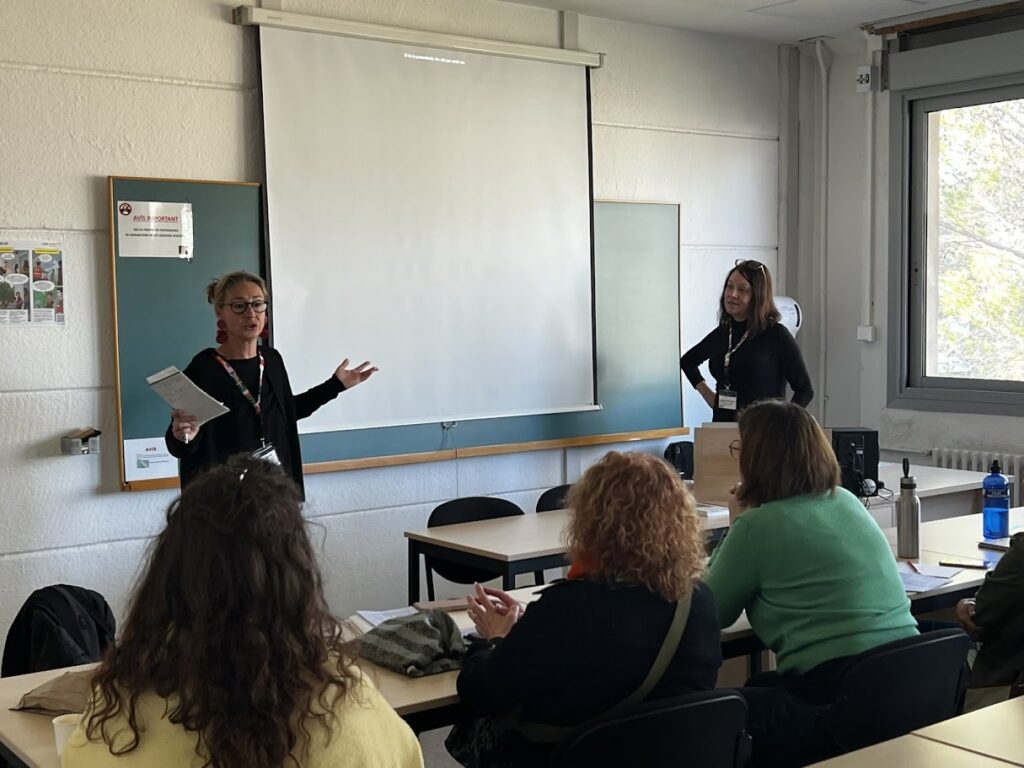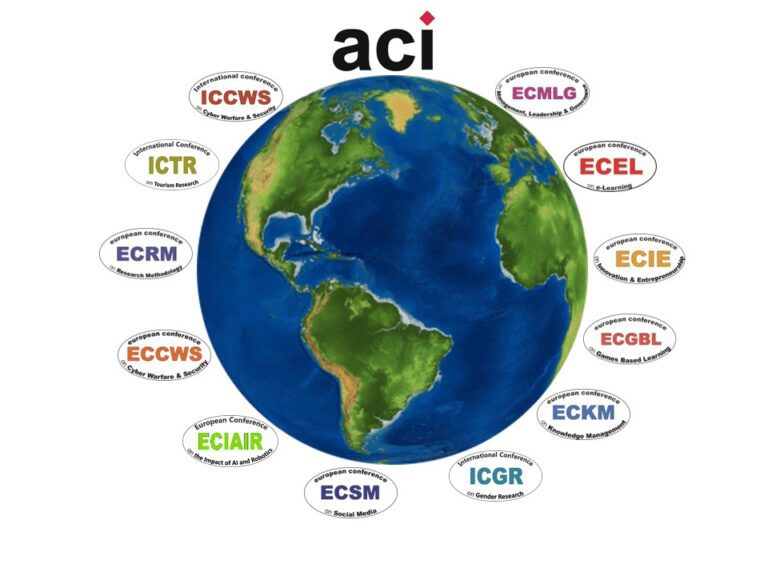17-18 SEPTEMBER 2026


Lisbon, Portugal
ECIE 2026
21st European Conference on Innovation and Entrepreneurship
Call for Papers

- Academic Papers
- Case Studies
- Work in-Progress Papers
- PhD Papers
- Masters Papers
- Posters and Presentations
- Non- Academic or Practitioner Contributions
Aims and Scope
The primary aim of ECIE is to foster a comprehensive understanding of innovation and entrepreneurship by bringing together, from around the world, diverse perspectives from academia, industry, and policy-making. The conference seeks to bridge the gap between theory and practice, offering insights into the processes that fuel innovation and entrepreneurial ventures. ECIE encourages the exploration of new ideas, the development of innovative business models, and the identification of best practices that can be applied across different sectors and regions.
The scope of the conference is broad and interdisciplinary, encompassing a wide range of topics related to innovation management, entrepreneurial ecosystems, and the role of technology in driving business growth. ECIE also emphasises the importance of education and training in fostering entrepreneurial skills and mindsets, as well as the role of policy and government in supporting innovation and entrepreneurship.
Topics Covered
The call for papers for the ECIE conference asked for contributions that considered the following topics. In addition, the committee welcomed papers on a number of specialist mini-tracks which can be seen at the end of this list.
Social Entrepreneurship and Innovation
- Strategies for creating social value in business.
- Case studies of successful social enterprises.
- The role of entrepreneurship in addressing social and environmental challenges.
Nature-Based Solutions (NBS)
- Innovative approaches to integrating NBS in business and urban planning.
- The impact of NBS on community resilience and environmental sustainability.
- Cross-sector collaborations for implementing NBS.
Responsible Business Practices
- Corporate Social Responsibility (CSR) and its evolving role.
- Integrating sustainability into core business strategies.
- Balancing profitability with social and environmental impact.
Digital Transformation in Business
- Leveraging digital tools for enhanced innovation and efficiency.
- Digital platforms for scaling social enterprises.
- Opportunities and challenges of digital transformation in traditional industries.
Artificial Intelligence (AI) and Entrepreneurship
- AI-driven business models and innovation.
- Ethical considerations of AI in society.
- The role of AI in supporting social entrepreneurship and addressing social issues.
Innovation in Sustainable Development
- Entrepreneurship’s role in achieving the Sustainable Development Goals (SDGs).
- Green technologies and sustainable business practices.
- Fostering a circular economy through innovative ventures.
Entrepreneurial Ecosystems and Social Impact
- Building supportive ecosystems for social entrepreneurs.
- Regional approaches to fostering innovation and social entrepreneurship.
- The impact of universities and research institutions on social innovation.
Public-Private Partnerships and Cross-Sector Collaboration
- The role of government, private sector, and NGOs in fostering innovation.
- Models of collaboration for tackling social and environmental challenges.
- Financing mechanisms for social enterprises and innovative projects.
Future Trends in Entrepreneurship and Innovation
- Emerging trends shaping the entrepreneurial landscape.
- Technology-driven changes in entrepreneurship.
- Preparing the next generation of entrepreneurs for socially responsible innovation.
Measurement and Evaluation of Social Impact
- Metrics for assessing social and environmental value.
- Tools and methodologies for impact measurement.
- Reporting and accountability in social enterprises.
Mini Tracks
Academic Entrepreneurship and Entrepreneurial Ecosystem Dynamics
Mini Track Chairs: Sara Proença and João Ferreira, Polytechnic University of Coimbra & CERNAS – Research Center for Natural Resources, Environment and Society, Portugal Universidade da Beira Interior & NECE – Research Center for Business Sciences, Portugal
Universities are increasingly recognized as key players in entrepreneurial ecosystems, promoting innovation, human capital development, and regional competitiveness. However, despite rising scholarly interest, how university-based entrepreneurial activities impact broader ecosystem dynamics is only partly understood and strongly influenced by institutional and policy contexts. This mini track invites theoretical, empirical, and policy-oriented contributions that examine the multifaceted relationships between academic entrepreneurship and entrepreneurial ecosystem dynamics. Particular emphasis is placed on cross-national analyses, contextual moderators, and causal mechanisms that explain how universities generate, transfer, and amplify entrepreneurial value across different environments. We welcome submissions employing a wide range of methodological approaches, including quantitative methods (such as econometric modelling), qualitative analyses (such as comparative case studies), literature reviews (including bibliometric analyses), and policy evaluations. This track seeks to foster a comprehensive understanding of the dynamic role of universities play within entrepreneurial ecosystems and to generate evidence-based insights that can guide the development of more effective academic, regional, and national entrepreneurship policies.
- The impact of academic entrepreneurship on entrepreneurial ecosystem performance and sustainability.
- Comparative studies of university entrepreneurial ecosystems across countries or regions.
- Measurement frameworks and indicators for academic entrepreneurship and innovation capacity.
- The moderating role of institutional and policy environments in influencing university impacts.
- Knowledge spillover theory and its implications for academic entrepreneurship.
- Policy and governance mechanisms that foster resilient and inclusive entrepreneurial ecosystems.
Technology Transfer Processes and Innovation Systems
Mini Track Chairs: Andreea Maria Gabriela MIlitaru
Technology transfer processes play a crucial role in bridging the gap between research and practical application. Tech transfer involves the movement of knowledge, skills, and technologies between organizations, especially essential for universities fostering innovation. This research topic is particularly relevant in contemporary settings where the adoption of technologies can impact various industries. One of the key aspects of performant tech transfer is smoothing the processes related to valorisation and facilitating the commercial use of technologies by granting rights to other parties. By addressing this research theme for the mini-track, participants can better understand the complexities involved in bringing new technologies to market, as well as the complexities of the stakeholders involved.
- Regional/National Innovation Systems
- Technology transfer processes within research organizations and HEIs
- Stakeholders’ involvement in tech transfer processes
- Technology transfer and sustainability connection
Beyond Profit: Rethinking Business Models for a Sustainable Future
Mini Track Chairs: Ludmiła Walaszczyk, Lukasiewicz – Institute for Sustainable Technologies, Radom, Poland
The transition toward sustainability requires a fundamental rethinking of how organizations create, deliver, and capture value. Traditional business models focused primarily on financial performance are increasingly challenged by environmental constraints, social expectations, and regulatory pressures. This mini track explores how businesses can move beyond profit maximization and integrate sustainability into the core of their strategic and operational design. We invite conceptual, empirical, and case-based contributions that examine innovative approaches to sustainable business model design, including circular economy practices, regenerative and collaborative models, and the integration of digital technologies to support sustainability transitions. Of particular interest are studies that explore how firms measure, communicate, and balance the triple bottom line – people, planet, and profit – while remaining competitive in dynamic markets. The track aims to foster dialogue among scholars and practitioners from diverse disciplines, including management, entrepreneurship, innovation, and sustainability studies. By showcasing emerging frameworks, tools, and real-world examples, this session will contribute to a deeper understanding of how sustainable business models can drive systemic change toward a more resilient and equitable economy.
- Innovative frameworks and tools for designing sustainable business models
- Integration of circular economy principles into existing value chains
- Integrating ESG principles into core business models and strategic decision-making
- Digital transformation as an enabler of sustainable and regenerative business models
- Collaborative and cross-sector partnerships driving sustainability transitions
- Strategies for aligning profitability with environmental and social value creation
Women in Intelligent Systems and Entrepreneurship
Mini Track Chairs: Dr Souad Slyman,University of Roehampton, London, UK
This mini-track explores the intersection of gender, artificial intelligence (AI), and entrepreneurship, with a focus on advancing women’s participation, leadership, and innovation within intelligent systems. As AI and data-driven technologies reshape industries, women remain underrepresented in both technical and entrepreneurial domains. This track invites theoretical, empirical, and practice-oriented contributions that examine how women engage with intelligent systems as innovators, founders, researchers, and policy influencers. Key themes include gender-inclusive design and development of AI systems, barriers and enablers to women’s entrepreneurship in technology-intensive sectors, leadership models for inclusive innovation, and strategies for fostering equitable participation across the AI ecosystem. The track also welcomes interdisciplinary perspectives that address education, ethics, and policy dimensions influencing women’s access to AI entrepreneurship opportunities. By bringing together scholars, practitioners, and policymakers, this mini-track aims to create a dialogue on how intelligent systems can be leveraged to empower women as creators and decision-makers, rather than mere users, of technology. Ultimately, the discussion seeks to contribute to a more diverse, ethical, and socially responsible AI and entrepreneurial landscape.
- Women’s empowerment through intelligent systems and AI-enabled entrepreneurship
- Women’s leadership, innovation, and participation in AI-driven entrepreneurial ecosystems
- Socio-economic, ethical, and policy frameworks that promote women equity and empowerment in AI entrepreneurship
- Education, mentoring, and digital skills development for empowering women in intelligent systems
- Interdisciplinary and cross-sector approaches to advancing women’s agency, visibility, and impact in AI and entrepreneurship.
Important Dates
| Abstract submission deadline | 25 February 2026 |
| Notification of abstract acceptance | 11 March 2026 |
| Full paper due for review | 16 April 2026 |
| Notification of paper acceptance (with any requested changes) | 25 June 2026 |
| Earlybird registration closes | 09 July 2026 |
| Final paper due (with any changes) | 23 July 2026 |
| Final Author payment date | 13 August 2026 |
| Excellence awards abstract submission | 08 April 2026 |
| Excellence awards notification of abstract acceptance | 22 April 2026 |
| Excellence awards full case history submission | 01 June 2026 |
| Excellence awards finalists announced | 01 July 2026 |
Keynote Speakers
Keynote coming soon
Conference Contacts
| Academic Enquiries | Professor Dan Remenyi |
| Submission Enquiries | Carol Carslake |
| Registration Enquiries | Belinda Burchell |
| Other Enquiries | Marti Bell |











